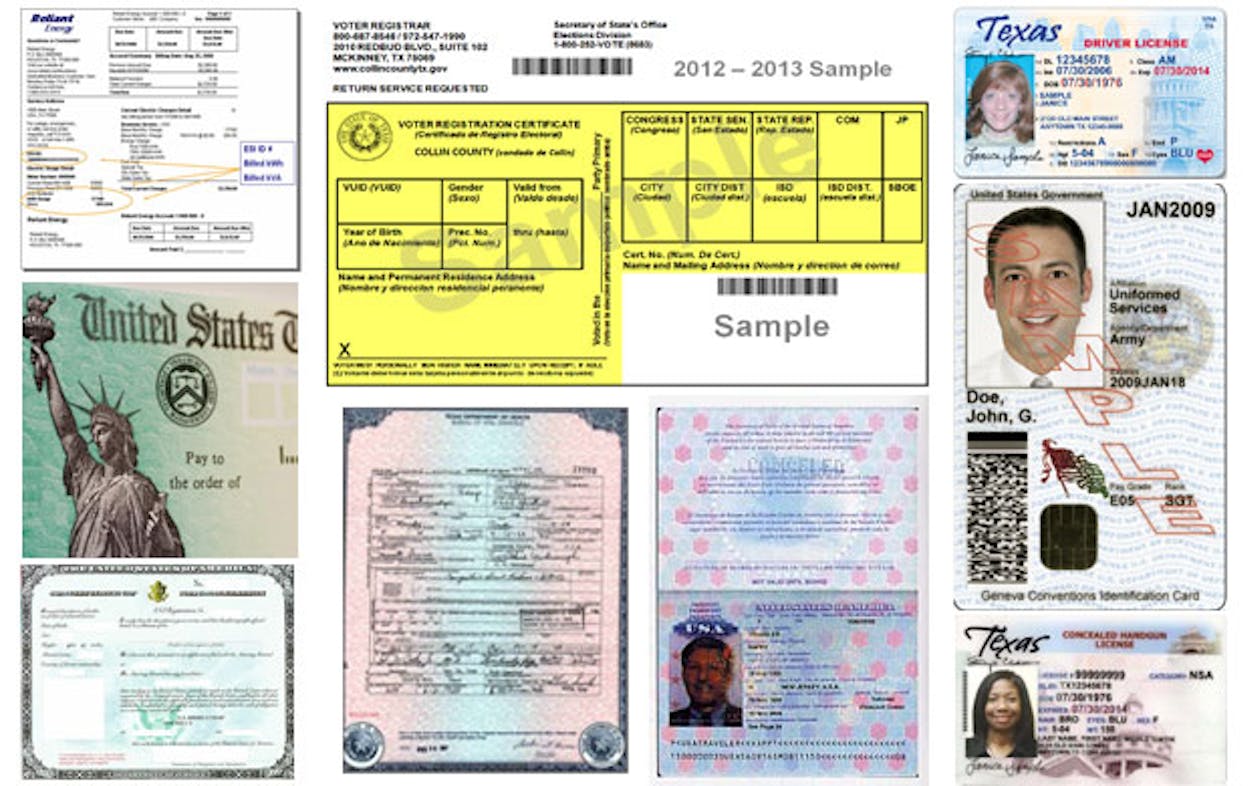You may have heard that the law requiring Texas voters to present photo ID at the polls is currently held up in court. So what does this mean for you when you go to cast your ballot? What form of identification does one need? “What I’ve been telling voters is ‘bring what you brought last time,'” Travis County Clerk Dana DeBeauvoir told the TM Daily Post.
That’s right: while the Texas legislature passed a law requiring voters to present government-issued photo ID at the polls last session, it’s not currently in effect. A federal appeals court struck the law down in August: “The State of Texas enacted a voter ID law that — at least to our knowledge — is the most stringent in the country,” the decision reads. “That law will almost certainly have retrogressive effect: it imposes strict, unforgiving burdens on the poor, and racial minorities in Texas are disproportionately likely to live in poverty.” Texas Attorney General Greg Abbott has appealed to the U.S. Supreme Court, but, for now, the state’s old law stands.
So, what kind of ID do you have to show when you vote? According to the Secretary of State, you can present your voter registration certificate at the polls. If you don’t have that, you can use any of the following forms of identification, including:
- A driver’s license or personal identification card issued to you by the Texas Department of Public Safety. You may also bring a similar document issued to you by an agency of another state, even if the license or card has expired;
- A form of identification that contains your photograph and establishes your identity;
- A birth certificate or other document confirming birth that is admissible in a court of law and establishes the person’s identity;
- Your United States citizenship papers;
- Your United States passport;
- Official mail addressed to you by a governmental entity; or
- A copy of a current utility bill, bank statement, government check, paycheck, or other government document that shows your name and address.
But there has been some confusion about the issue at the polls. Last week, Wayne Slater of the Dallas Morning News recounted his experience trying to use a current copy of his utility bill to vote early in Williamson County:
I entered my early-voting polling place last weekend at the Georgetown Parks & Recreation office. I showed the supervisor, Peggy, my utility bill from the city of Georgetown bearing my name and address. Peggy looked over her glasses at me with disapproval.
Peggy: “Do you have a driver’s license?”
Me: “This is what I’m giving you for identification.”
Peggy: “We prefer a voter-registration card or a driver’s license. There’s a list of identifications starting with registration card, driver’s license, picture ID — we prefer to go in that order.”
Me: “Does that mean, Peggy, that I can’t vote with this?”
At that point, she got up, turned around and began leafing through a booklet with the state law. Another supervisor scurried over. Peggy said I wasn’t producing a photo ID. He looked quickly at my utility bill and said, “That looks fine.”
Peggy responded: “It has to be a current utility bill.”
He looked over the bill. It was current. “This looks fine,” he said.
When Slater brought up his experience with the Williamson County Elections Administrator, he said that pollworkers would be reminded of the law.
Slater mused that he ending up voting, but pondered whether that would have been the outcome for other voters: “I voted, but you have to wonder: What if an elderly person or a citizen with English as a second language had done the same thing? Would they have been turned away? Would they have been intimidated and left?” he asked.
Steve Raborn, Tarrant County Elections Administrator, told the TM Daily Post that the different forms of acceptable identification are stressed during Tarrant County’s training sessions for election workers. “Not only is it included in our PowerPoint, but we actually put a flyer in every seat at our training sessions explaining that the photo ID law is not in effect and lists the acceptable idenification,” he said.
Harris County Clerk Stan Stanart said that pollworkers in that county are trained to ask for voter registration cards and provided pages from the Harris County’s Election Day Law & Operations Training Manual to the TM Daily Post. According to the manual, the greeter at the polling place, after asking voters to turn off their cell phones, should ask “the voter to take out their voter registration certificate or if none, take out another form of identification.”
Once at the qualifying table, the clerk “will ask the voter for their current voter certificate. If the voter does not have their voter registration certificate, the clerk shall ask for identification required by law,” the manual states.
Are you registered to vote? Check here. You can report any possible voting rights abuses by contacting the Texas Secretary of State (1.800.252.8683) or your county election official.
- More About:
- Politics & Policy
- Voter ID







